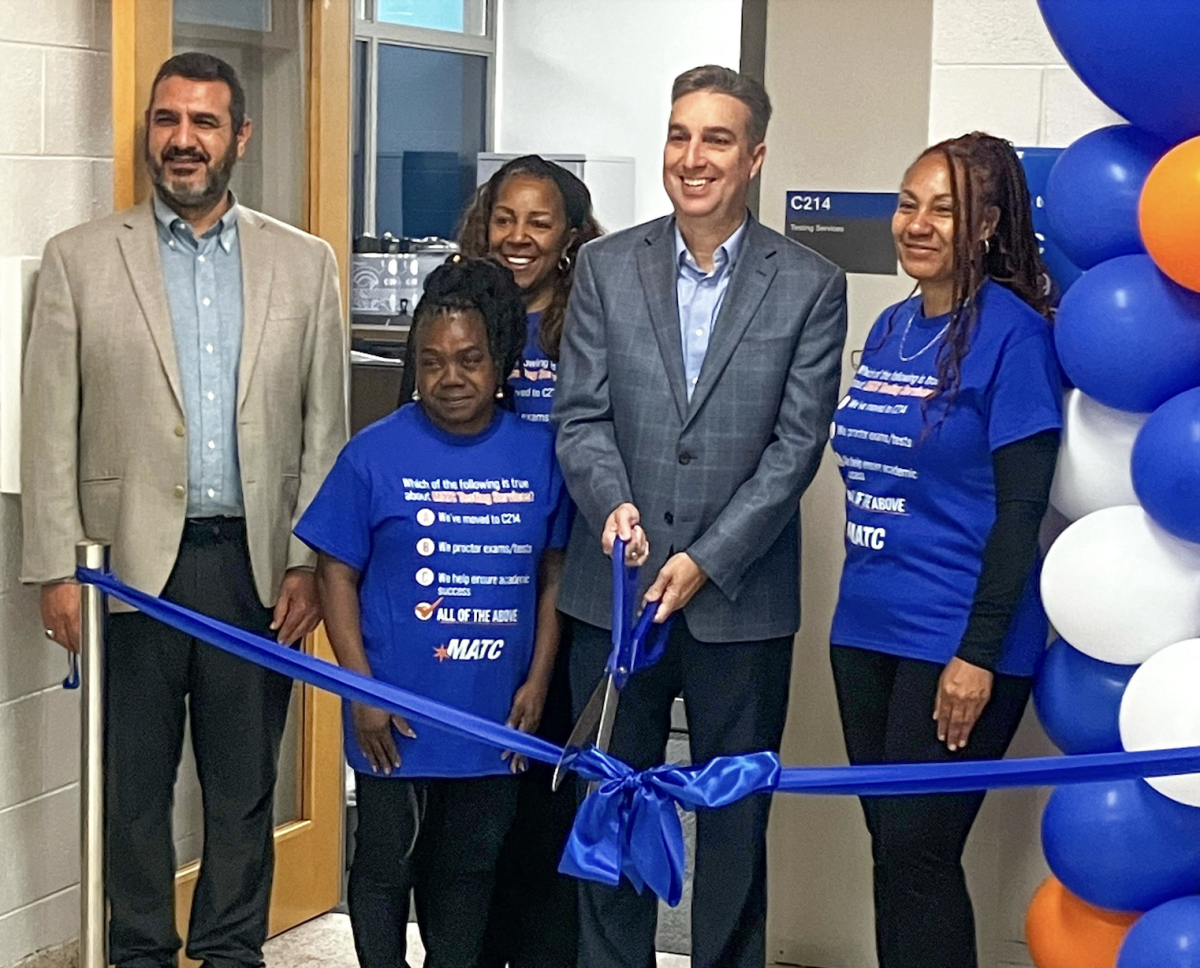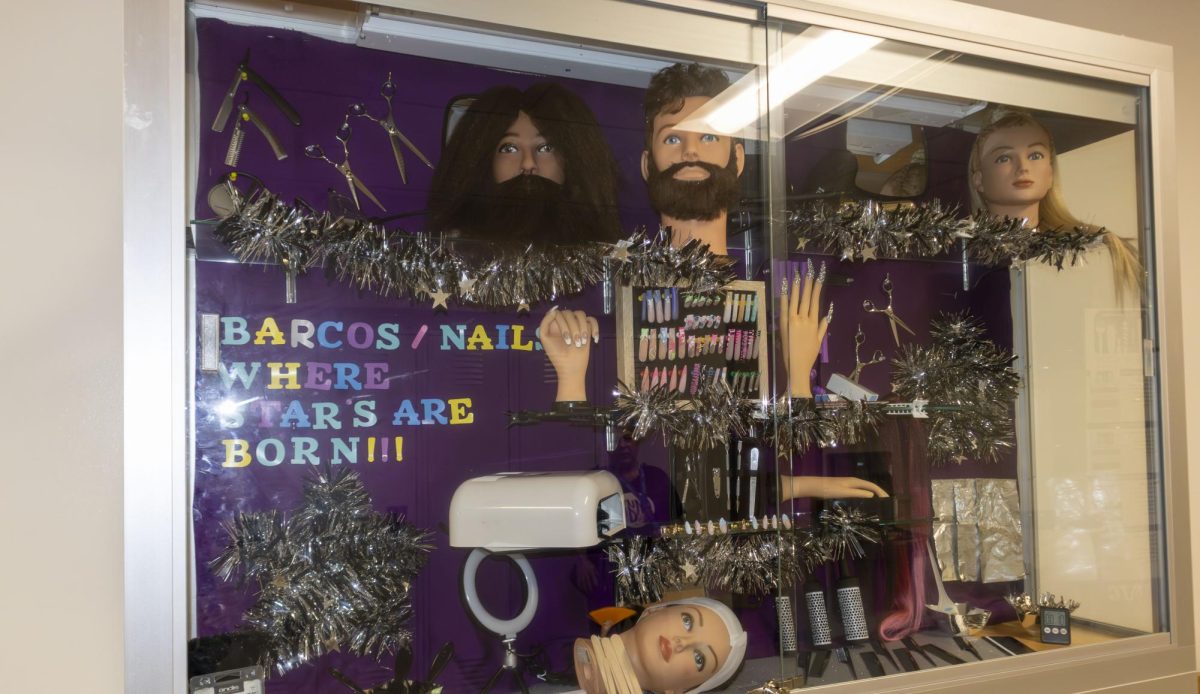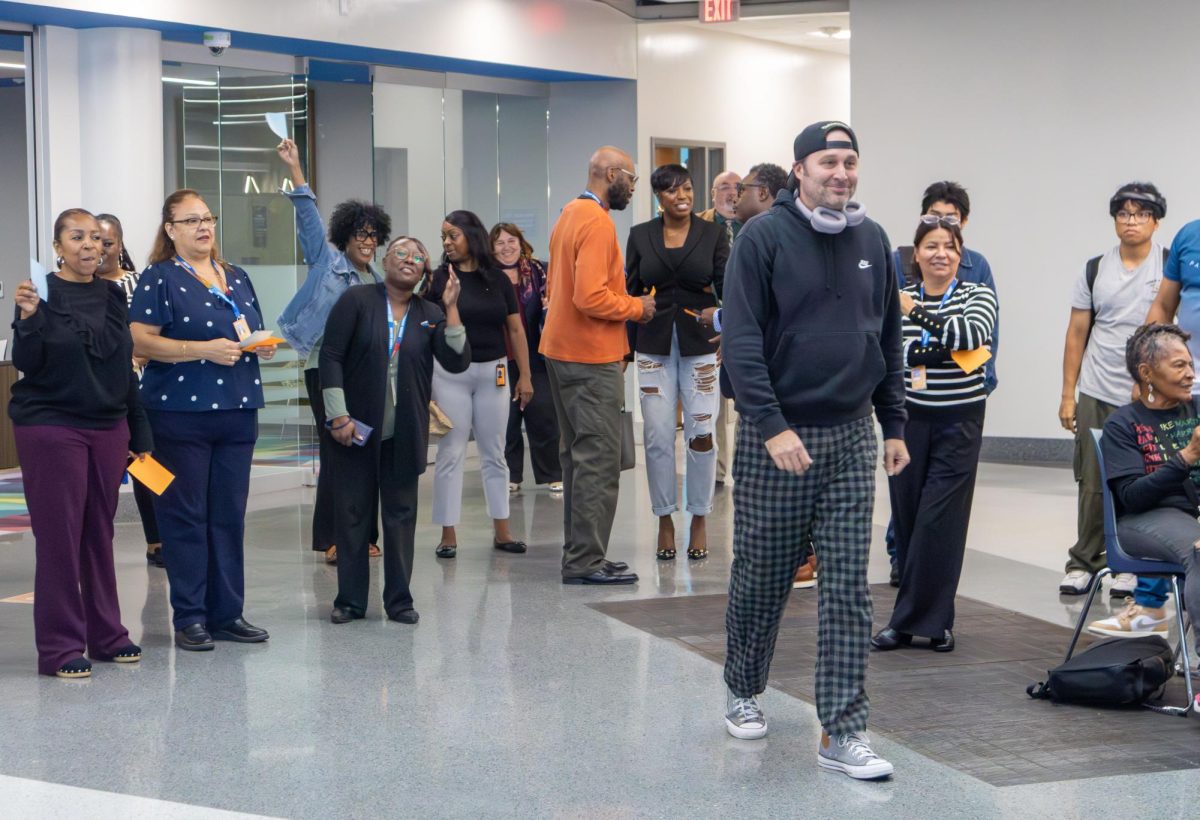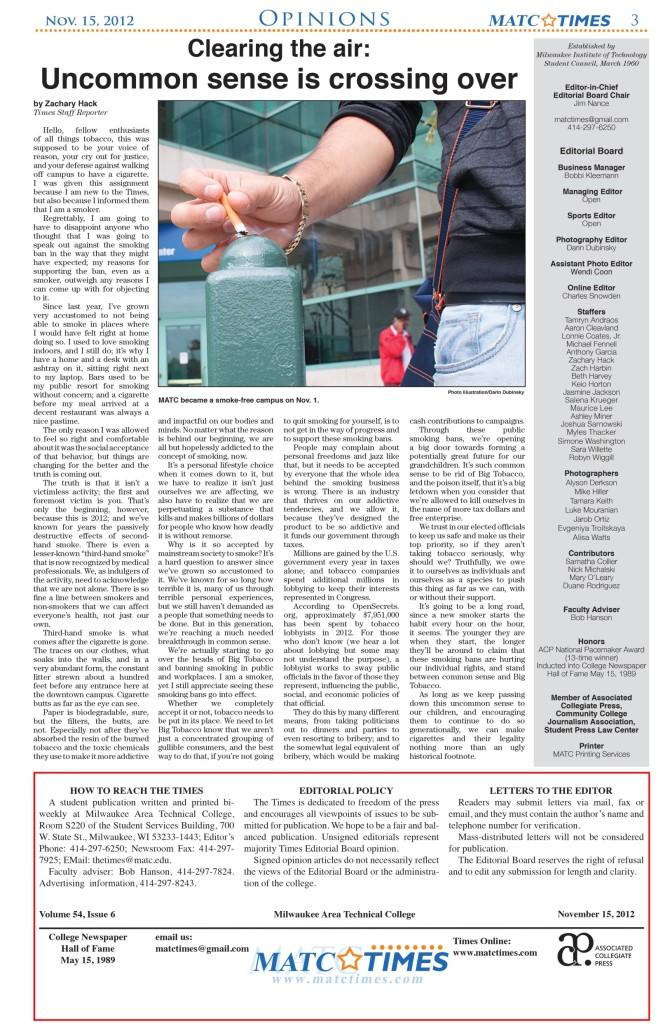Hello, fellow enthusiasts of all things tobacco, this was supposed to be your voice of reason, your cry out for justice, and your defense against walking off campus to have a cigarette. I was given this assignment because I am new to the Times, but also because I informed them that I am a smoker.
Regrettably, I am going to have to disappoint anyone who thought that I was going to speak out against the smoking ban in the way that they might have expected; my reasons for supporting the ban, even as a smoker, outweigh any reasons I can come up with for objecting to it.
Since last year, I’ve grown very accustomed to not being able to smoke in places where I would have felt right at home doing so. I used to love smoking indoors, and I still do; it’s why I have a home and a desk with an ashtray on it, sitting right next to my laptop. Bars used to be my public resort for smoking without concern; and a cigarette before my meal arrived at a decent restaurant was always a nice pastime.
The only reason I was allowed to feel so right and comfortable about it was the social acceptance of that behavior, but things are changing for the better and the truth is coming out.
The truth is that it isn’t a victimless activity; the first and foremost victim is you. That’s only the beginning, however, because this is 2012; and we’ve known for years the passively destructive effects of second-hand smoke. There is even a lesser-known “third-hand smoke” that is now recognized by medical professionals. We, as indulgers of the activity, need to acknowledge that we are not alone. There is so fine a line between smokers and non-smokers that we can affect everyone’s health, not just our own.
Third-hand smoke is what comes after the cigarette is gone. The traces on our clothes, what soaks into the walls, and in a very abundant form, the constant litter strewn about a hundred feet before any entrance here at the downtown campus. Cigarette butts as far as the eye can see.
Paper is biodegradable, sure, but the filters, the butts, are not. Especially not after they’ve absorbed the resin of the burned tobacco and the toxic chemicals they use to make it more addictive and impactful on our bodies and minds. No matter what the reason is behind our beginning, we are all but hopelessly addicted to the concept of smoking, now.
It’s a personal lifestyle choice when it comes down to it, but we have to realize it isn’t just ourselves we are affecting, we also have to realize that we are perpetuating a substance that kills and makes billions of dollars for people who know how deadly it is without remorse.
Why is it so accepted by mainstream society to smoke? It’s a hard question to answer since we’ve grown so accustomed to it. We’ve known for so long how terrible it is, many of us through terrible personal experiences, but we still haven’t demanded as a people that something needs to be done. But in this generation, we’re reaching a much needed breakthrough in common sense.
We’re actually starting to go over the heads of Big Tobacco and banning smoking in public and workplaces. I am a smoker, yet I still appreciate seeing these smoking bans go into effect.
Whether we completely accept it or not, tobacco needs to be put in its place. We need to let Big Tobacco know that we aren’t just a concentrated grouping of gullible consumers, and the best way to do that, if you’re not going to quit smoking for yourself, is to not get in the way of progress and to support these smoking bans.
People may complain about personal freedoms and jazz like that, but it needs to be accepted by everyone that the whole idea behind the smoking business is wrong. There is an industry that thrives on our addictive tendencies, and we allow it, because they’ve designed the product to be so addictive and it funds our government through taxes.
Millions are gained by the U.S. government every year in taxes alone; and tobacco companies spend additional millions in lobbying to keep their interests represented in Congress.
According to OpenSecrets.org, approximately $7,951,000 has been spent by tobacco lobbyists in 2012. For those who don’t know (we hear a lot about lobbying but some may not understand the purpose), a lobbyist works to sway public officials in the favor of those they represent, influencing the public, social, and economic policies of that official.
They do this by many different means, from taking politicians out to dinners and parties to even resorting to bribery; and to the somewhat legal equivalent of bribery, which would be making cash contributions to campaigns.
Through these public smoking bans, we’re opening a big door towards forming a potentially great future for our grandchildren. It’s such common sense to be rid of Big Tobacco, and the poison itself, that it’s a big letdown when you consider that we’re allowed to kill ourselves in the name of more tax dollars and free enterprise.
We trust in our elected officials to keep us safe and make us their top priority, so if they aren’t taking tobacco seriously, why should we? Truthfully, we owe it to ourselves as individuals and ourselves as a species to push this thing as far as we can, with or without their support.
It’s going to be a long road, since a new smoker starts the habit every hour on the hour, it seems. The younger they are when they start, the longer they’ll be around to claim that these smoking bans are hurting our individual rights, and stand between common sense and Big Tobacco.
As long as we keep passing down this uncommon sense to our children, and encouraging them to continue to do so generationally, we can make cigarettes and their legality nothing more than an ugly historical footnote.
Clearing the air: Uncommon sense is crossing over
November 13, 2012
Photo by MATC Times
Print Version
More to Discover


























































